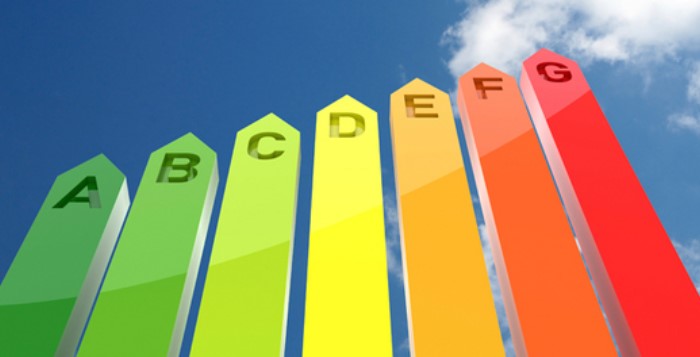In September 2014 we sent to General Pueyrredón Municipality government in Argentina a draft with proposals.
It was proposed energy efficiency and increased use, promotion and development of solar energy at municipal level.
We believe it can serve as reference for those municipalities that are not using their solar resource and want to start doing so.
The proposals include the following assumptions / premises:
I) Economic evaluation (initial investment, annual savings and investment recovery period) of energy efficiency measures to be applied and solar energy systems to incorporate.
II) Energy efficiency and solar energy promotion to improve environmental quality, develop a new economic sector and new jobs creation in the Municipality.
III) Academic, business and institutional sectors participation.

1.1) Energy Efficiency Proposals
1.1.1.) Public buildings audit to identify areas in which implement energy efficiency measures.
1.1.2) Public buildings whose roofs can be used to install solar thermal collectors and photovoltaic modules relieving.
1.1.3) Facilities with intensive lighting use (more than 8 hours / day) relieving to evaluate luminaire replacement by LED, which can achieve savings ranging from 50% -80%. Evaluate motion detectors installation in transit areas and other lighting devices optimization measures.
1.1.4) Evaluate replacement of boilers and air conditioners equipment by biomass, solar thermal and heat pumps, which can achieve between 40% -60% savings.
1.1.5) Installing saving systems (aerators, valves, low consumption taps, etc.) and water reuse (rainwater recovery, rainwater infiltration, etc.) in public buildings and encourage its use in private sector.

2.1) Solar Thermal Energy Proposals
2.1.1) Use of solar thermal energy compact equipment to provide hot water to houses in social housing programs and new developments.
2.1.2) Use of solar thermal collectors (flat and vacuum tube) with heat transfer fluids, heat exchangers and independent accumulation tanks; to obtain hot water in public buildings and municipal pools conditioning.
2.1.3) Use of solar thermal systems for new construction public buildings and facilities conditioning.

3.1) Solar PV Energy Proposals
3.1.1) Use of solar photovoltaic systems for lighting and electrification of schools, medical centers, police stations and residential users in isolated localizations. 50W to 400W systems.
3.1.2) Implementation of photovoltaic solar energy in signs (sea, rail, road and air) and parking meters renovation or modernization.
3.1.3) Assess solar photovoltaic energy incorporation in OSSE and other municipality’s departments for:
– Water supply
– Water pumping / irrigation
– Cathodic protection
– Remote satellite systems, fire detection, telemetry and other systems that must provide services in remote or inaccessible places.
20W-50W (emergency kits), 100W-400W (repeaters) and more than 20 Kw (block valves).
3.1.4) Street lighting. Solar lamp with led proof in place to designate (industrial park, municipal office, etc.)
3.1.5) Photovoltaic grid connection project presentation for programs like GENREN (Ministry of Energy).

4) Long Term Policies
Municipality proposals within Emerging and Sustainable Cities Initiative framework.
4.1) Training
4.1.1) Renewable energies training activities development aimed at agents involved, whether installers, designers, professionals or companies; as it is one of the decisive factors linked to the continuous technology development.
4.2) Urban and Public Facilities
4.2.1) Implement the evaluation of solar technology architectural integration potential in facades and solar passive architecture principles application in new construction public buildings.
4.2.2) Provide treatment to solar ordinance proposal jointly presented by Puerto Hueche S.R.L. and the Clean Energy Research Group, UNMDP Law Faculty.
4.2.3) Public Lighting. Implementing solar and solar / wind street lighting utilization evaluation in all new developments making in each case the comparison with grid-connected conventional lighting system complete work needed.
4.3) Industry
4.3.1) Assess solar thermal energy equipment manufacturing feasibility in Municipality territory, considering that in Industrial Park related equipment manufacturers (heating and cooling) already exist.
4.3.2) Assess PV kits and PV lighting devices mounting feasibility. Synergy with UNMDP (Engineering Materials).
4.3.3) Promote the use of solar thermal energy in industrial sectors with practical applications:
* Brewing and malt
* Textile industry
* Liquid baths automotive paint cleaning and degreasing
* Food industry
– Hot water production for bottles cleaning and disinfecting
– Meat products, canned vegetables and canned fish washing, cooking, blanching and cleaning
– Canned sterilization
– Animal slaughter facilities cleaning.
And in service sector. Some examples:
– Hotels
– Urban waste collection and treatment
– Supermarkets and hypermarkets
– Laundry, carpets cleaning, upholstery, dry cleaners, etc.
– Car repair garages
– Glass containers recovery and reuse.
Solar energy development policies implementation with Sopelia.
